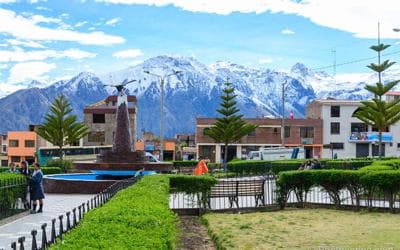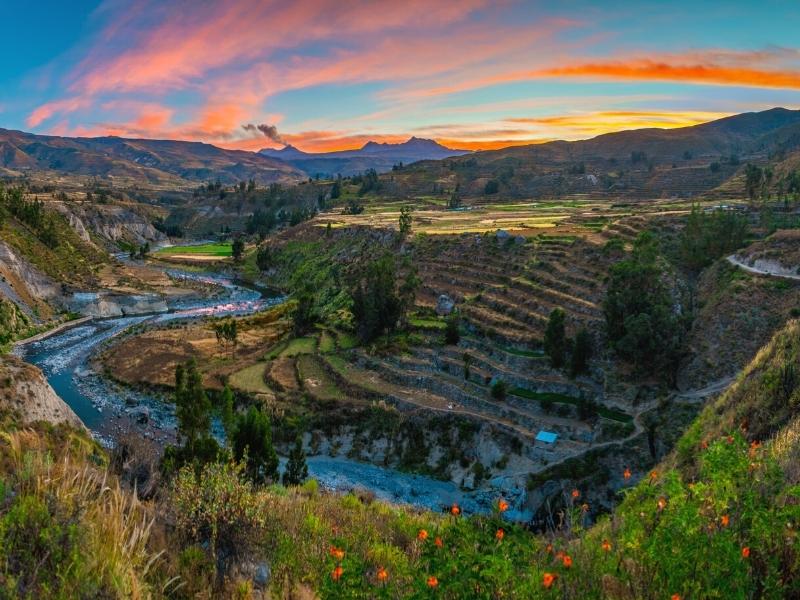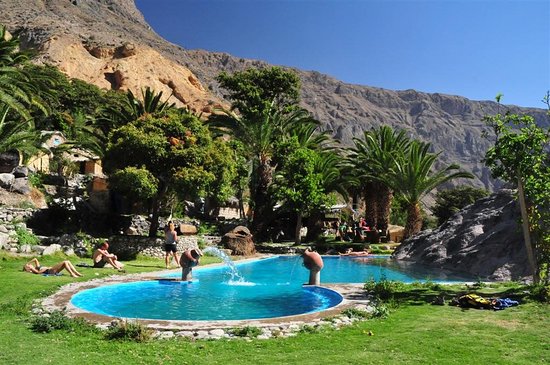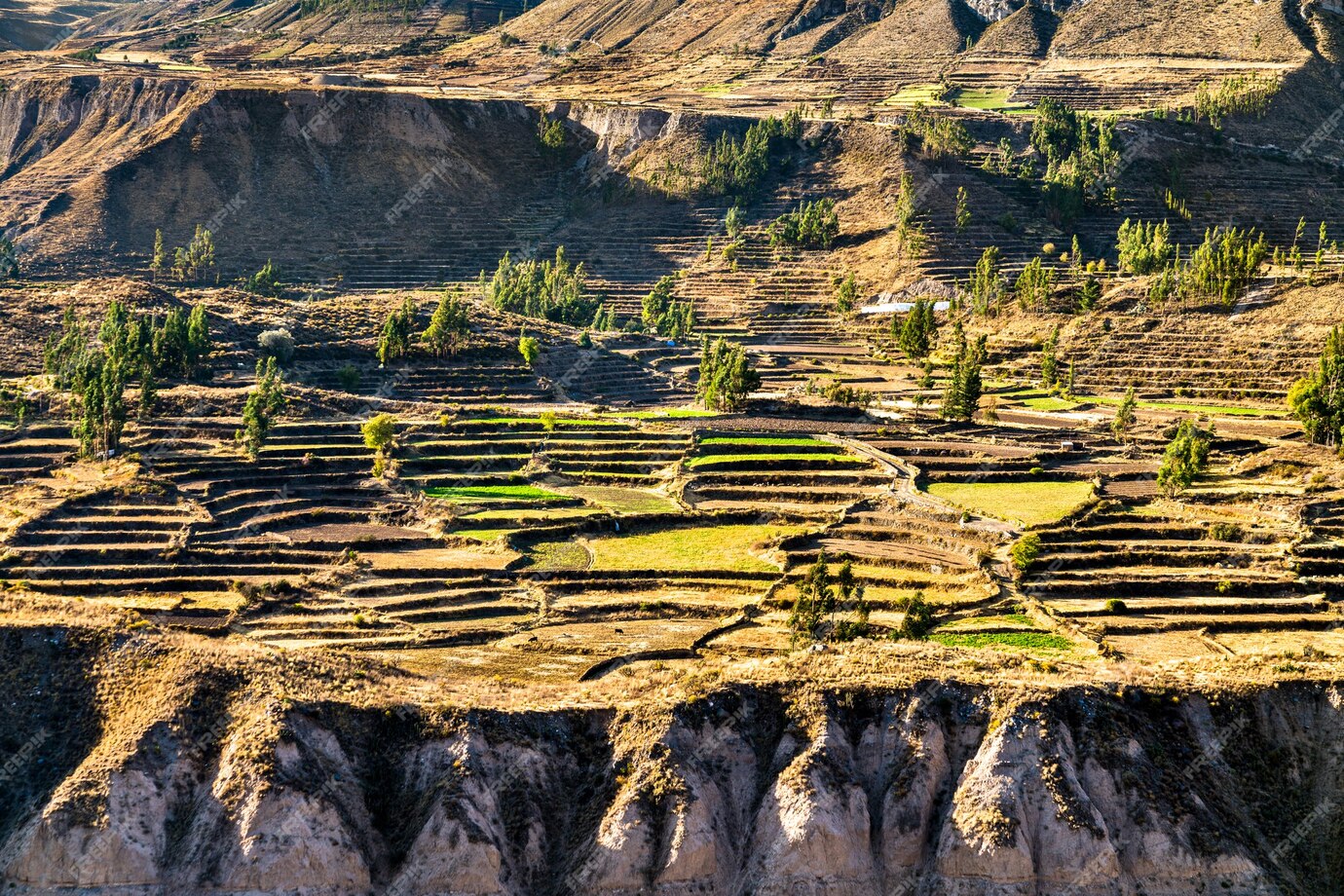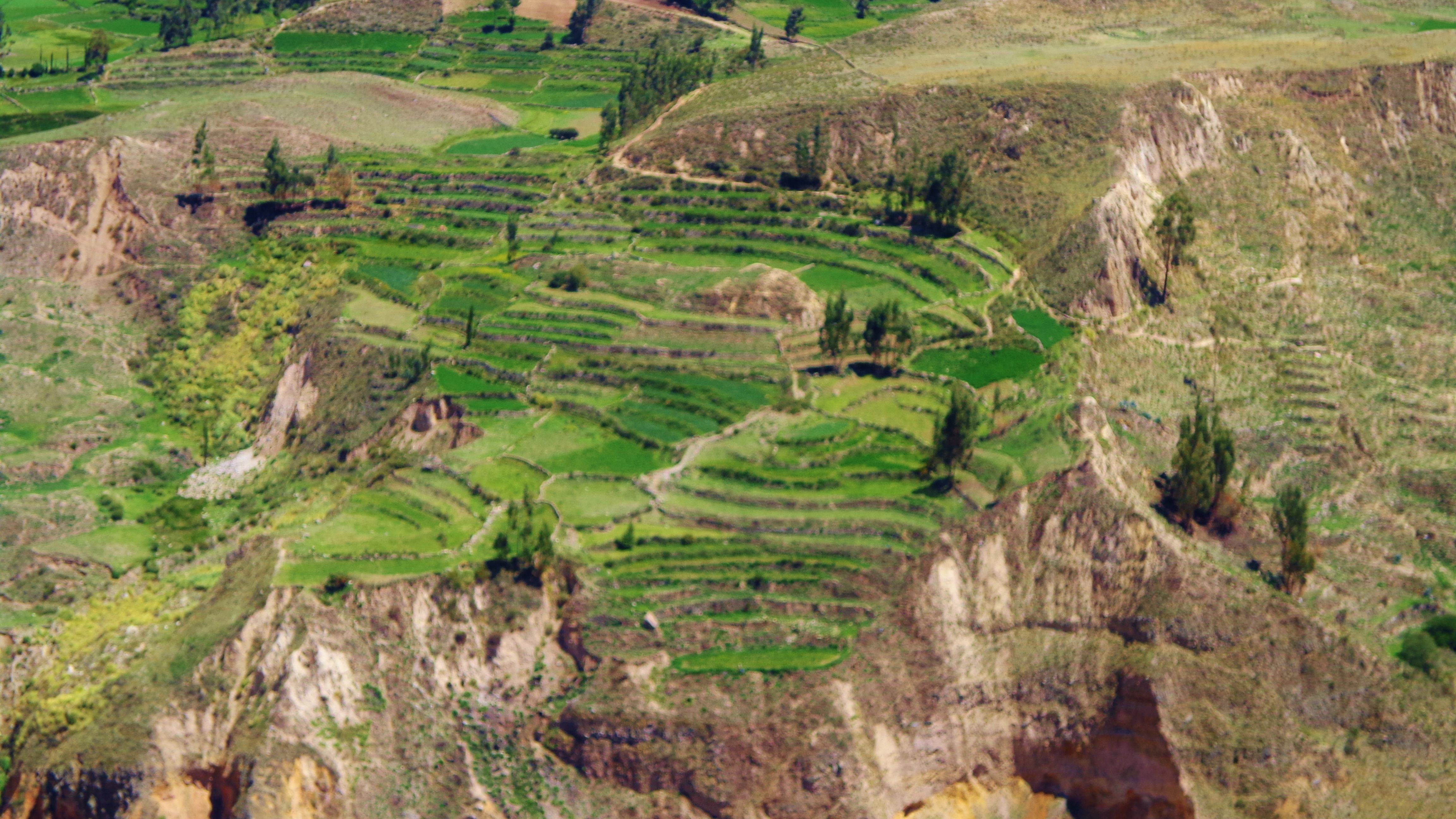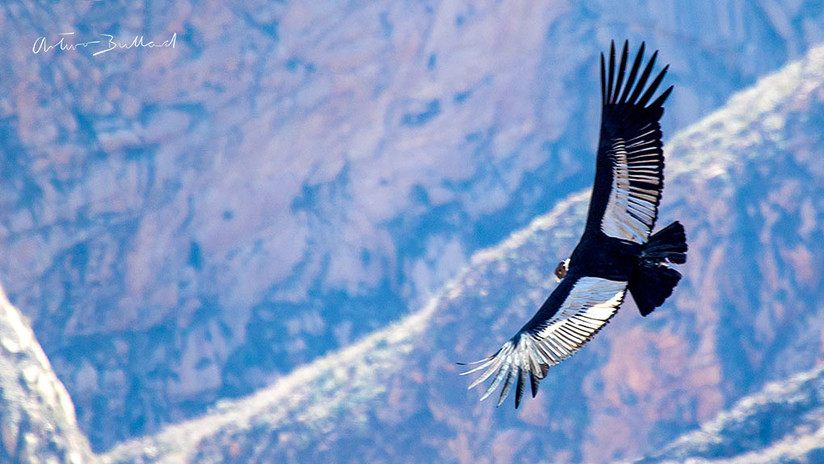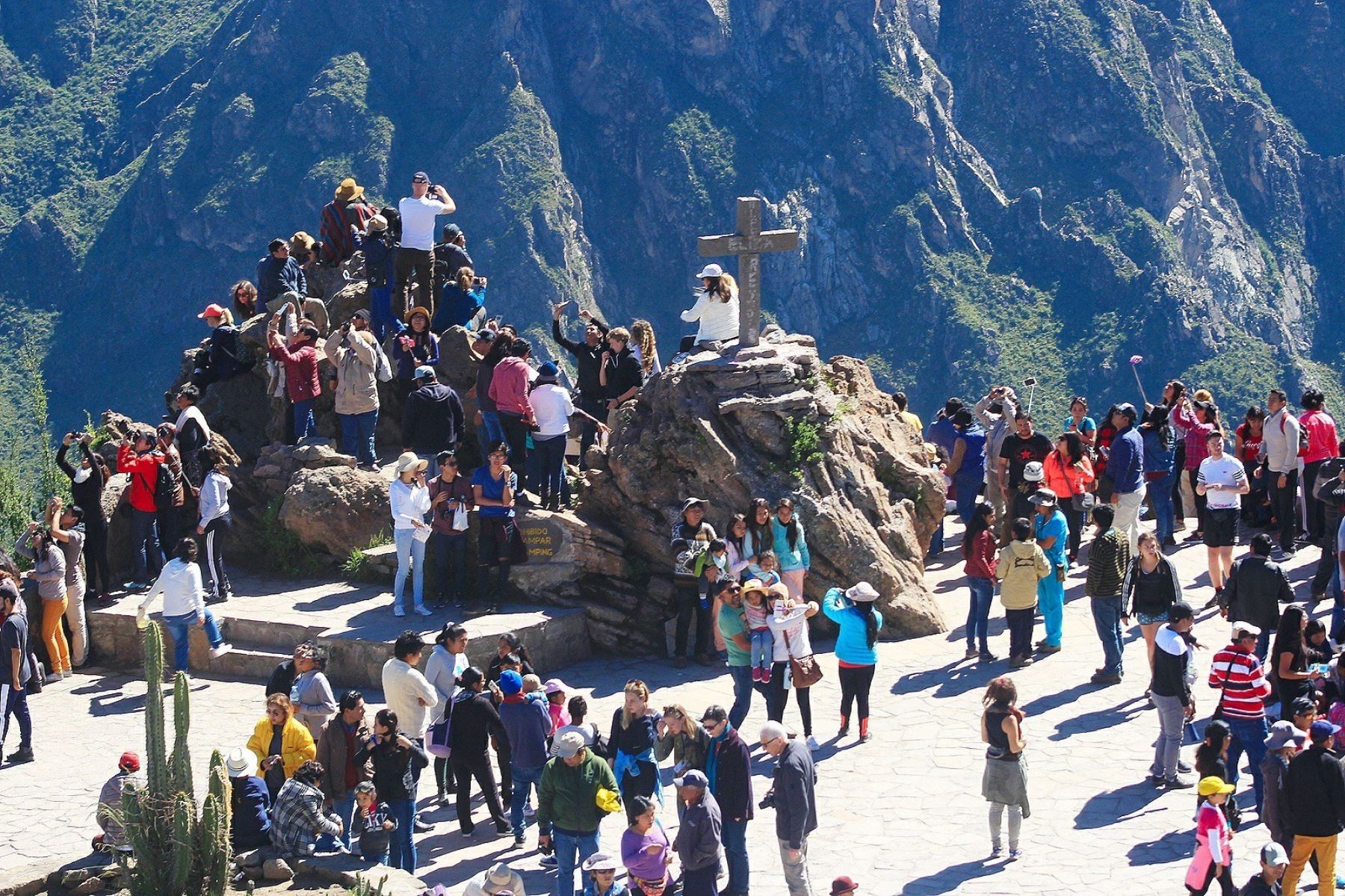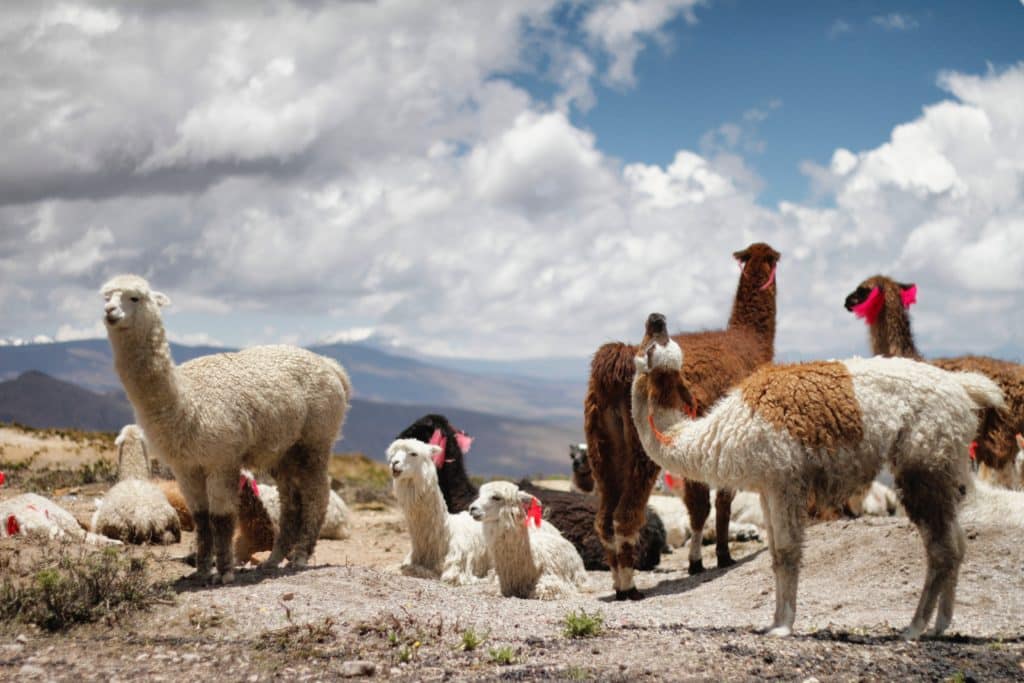Varied Climate
The climate in Colca Canyon varies significantly with altitude, from warm climates at the bottom
to cold
climates at the higher elevations.
Impressive Depth
Colca Canyon is one of the deepest canyons in the world, reaching a depth of approximately 3,400
meters.
It is deeper than the Grand Canyon in the United States.
Ecological Diversity
The region is home to remarkable biodiversity, including more than 300 species of plants and
numerous
endemic animals.
The Andean Condor
One of the main attractions of Colca is the Andean condor, with a wingspan of up to 3 meters,
making it
one of the largest flying birds in the world.
Ancient Cultures
The canyon has been inhabited for thousands of years by cultures such as the Collaguas and the
Cabana,
who developed advanced agricultural techniques.
Agricultural Terraces
The agricultural terraces built by the original inhabitants are still visible today and stand as
a
testament to their ingenuity in farming.
Traditional Festivals
The region celebrates numerous festivities throughout the year, with the Fiesta de la Cruz and
the Fiesta
de la Virgen de Chivay being the most notable, attracting many visitors.
Hot Springs
Near the canyon, you’ll find the hot springs of Chivay and La Calera, perfect for relaxing after
a day of
exploration.
Hiking Trails
There are multiple hiking routes in the canyon, allowing visitors to explore the stunning
geography and
local flora and fauna.
High-altitude Climate
As you ascend in altitude, the climate becomes colder and drier, with temperatures potentially
dropping
below zero at night.
Unique Flora
The flora of Colca Canyon includes endemic species such as the Raimondii puya, the largest plant
in the
world, which can reach up to 10 meters in height.
Stunning Geography
The landscape of the canyon is dramatic, with steep cliffs, winding rivers, and breathtaking
panoramic
views.
Migratory Birds
Besides the condor, the canyon serves as a stopover for many migratory birds traveling between
northern
and southern America.
Living Traditions
The local communities still practice their ancestral traditions, from agriculture to traditional
clothing.
Diverse Wildlife
In Colca, you can find species such as the vicuña, guanaco, and Andean fox, all adapted to the
harsh
conditions of the area.
Impressive Viewpoints
There are several viewpoints in the canyon, such as the Cruz del Cóndor viewpoint, where visitors
can
observe condors in flight.
Environmental Conservation
There are active efforts to conserve the Colca ecosystem, promoting sustainable tourism and
protecting
local wildlife.
Gastronomic Culture
The region's cuisine includes typical dishes such as broths and main courses known as “uchus” or
spicy
stews.
Thermal Inversion Effect
Due to its geography, the canyon experiences a thermal inversion effect, where the warmer
temperatures
are found in the upper layers during the night.
Adventure Tourism
Colca is not only a cultural destination but also an ideal place for activities such as rafting,
mountain
biking, and birdwatching.
Extreme Temperatures
In the highlands, temperatures can drop below 0°C, while at the bottom of the canyon, they can
exceed
25°C.
Mystical Town
The town of Chivay is the gateway to the canyon and offers a mix of traditional culture and
tourist
services.
Birds of Prey
The condor is not only emblematic but also plays an important role in local culture as a symbol
of
freedom.
Cultural Heritage
Colca Canyon is considered an area of cultural heritage, where ancient customs and traditions are
preserved and celebrated.
Terraces for Farming
These terraces are an example of Inca agricultural engineering, designed to maximize production
on steep
lands.
Nighttime Activities
The starry sky in Colca is perfect for stargazing, thanks to the low light pollution.
Textile Culture
The local population is known for their skill in making textiles, produced using traditional
techniques.
Picturesque Villages
There are several villages around the canyon that offer a rich history and traditions, attracting
tourists interested in local culture.
Inca Trails
Part of the canyon's history includes Inca roads that are still used by locals and tourists to
explore
the region.
